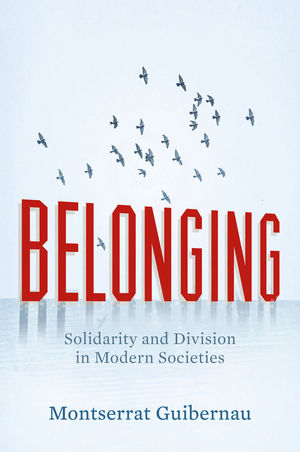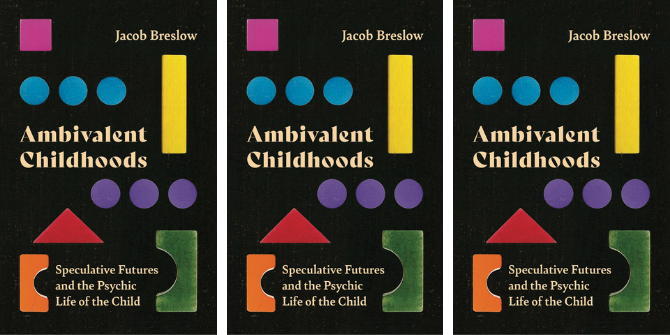It is commonly assumed that we live in an age of unbridled individualism, but in this book Montserrat Guibernau argues that the need to belong to a group or community – from peer groups and local communities to ethnic groups and nations – is a pervasive and enduring feature of modern social life. Although it includes a variety of interesting case studies from Britain, Spain, Catalonia, Germany, the Middle East and the United States, Taylor C. Sherman remains unconvinced and encounters some contradictions in the author’s arguments.
 Belonging: Solidarity and Division in Modern Societies. Montserrat Guibernau. Polity. July 2013.
Belonging: Solidarity and Division in Modern Societies. Montserrat Guibernau. Polity. July 2013.
Montserrat Guibernau’s book, Belonging: Solidarity and Division in Modern Societies is bang on trend. ‘Belonging’ is a word that has been circulating in the social sciences and humanities for over a decade now. But it is a term in search of meaning. Or rather, it is a concept in search of a debate. Perhaps because of its apparently obvious meaning, sociologists, political scientists, critical theorists, and historians have tended to deploy the term rather loosely without the usual arguments over definitions that we normally revel in.
The concern for belonging emerges out of a number of recent trends in these fields of scholarship. Firstly, there is the desire to move away from the use of the term identity, which has come to mean ‘too much…too little…or nothing at all’, as noted by Frederick Cooper in Colonialism in Question: Theory, Knowledge, History. Belonging could potentially provide a more nuanced language through which to analyse some of the concerns that have previously fallen under the study of identity. Secondly, whereas a few decades ago everyone was writing about identity and nationalism, today citizenship has become the preferred prism through which scholars study both the legal and practical relationship between the individual and the state (see James Holston’s, Insurgent Citizenship: Disjunctions of Democracy and modernity in Brazil and Jayal Niraja Gopal’s Citizenship and its Discontents: An Indian History). Belonging could provide a way of discussing the emotional aspects of citizenship whilst avoiding all the assumptions that would come with using the term nationalism. Indeed, a number of academic disciplines have recently discovered the emotions, and are keen to explore this New World. This ‘affective turn’, is the third trend behind the rise of concern for belonging, and it promises to place embodiment at the centre of the scholarship. Here, belonging becomes be-longing, with a deliberate emphasis on the yearning and desire that are part of the construction of the self in society (see Elspeth Probyn’s Outside Belongings and Vikki Bell’s Performativity and Belonging. Finally, influenced by the thought of Henri Lefebvre, the humanities and social sciences have developed an interest in place and space. This ‘spatial turn’ could potentially demonstrate how self, place and community are mutually constituted through the material life of a particular locality. Given their divergent interests, it is unlikely that a single understanding of belonging will come to be employed in all of these fields. Rather, several more precise usages might emerge for specific disciplines.

Looking at the title alone, it seems Guibernau’s Belonging has the potential to become one of the foci around which scholarly debates on belonging might begin to cohere. The book promises to demonstrate that ‘the strength and popularity of belonging seriously undermine arguments pointing to the predominance of individualism as the key feature of modern societies’ (p.1). This argument, as elaborated in chapter 1, is premised on an uncomplicated dichotomy drawn between ‘modern’ and ‘traditional’ societies. The modern is defined by an ‘emphasis on individuality’, whereas the traditional is equated with an ill-defined ‘medieval society’ which had a supposedly ‘stable political and social order’ (p.15). From Bruno Latour to Dipesh Chakrabarty a wide variety of scholars have systematically demolished this kind of simplistic dichotomy between modernity and tradition. The reader is surprised, therefore, not to find this notion of modernity seriously undermined, but that scholarly arguments can still be built on such assumptions.
Rather than moving away from the use of the term identity, Guibernau regards belonging as one-half of the formula through which identity is calculated, writing, ‘self-identity is constructed through belonging and through exclusion’ (p.26). As discussed in chapter 2, the idea of choice is central to Guibernau’s use of the term belonging. Through the mechanism of ‘belonging by choice’, individuals are both empowered and limited, for once a person has joined a group, he is ‘compelled to act in a particular manner and to comply with the group’s rules and values’ (p.28). There is a logical contradiction here: one cannot simultaneously argue that identities are constructed and that values are somehow immutable. Individuals who join a community, participate in its activities and invest its norms with their own meaning are constructing the values to which they are supposedly surrendering. Guibernau goes further to argue that, in certain circumstances, where a group identity is ‘strong’, then an ‘overriding identity’ is somehow activated and ‘permeates all aspects of the individual’s life’ to the point where ‘Choice ceases to exist’. Instead, fellow members of the group, especially its leaders, ‘judge and decide on the individual’s life’ (p.29). This theory is then used to bracket a discussion of the rise of the far right in Europe and the United States in chapter 4, where it is argued that these political movements can be explained by an emerging desire for ‘submission to a leader’ and ‘compulsive conformity’ (p.71).
Further chapters address rituals of belonging, loyalty and citizenship, and emotion in political mobilisation. Some of the less theoretical sections make for easier reading. Throughout the book the author seeks to illustrate her points using a variety of examples. Indeed, ‘communities of belonging’, in the author’s view, ‘encompass membership of a nation, a social club, a secret society… a university, as well as membership of a mosque or a youth gang’ (p.110). If belonging is reduced to membership then we are back to where we started, with a concept that applies everywhere and is empty of meaning.
———————————————
Dr Taylor C. Sherman is an Associate Professor in the International History Department at the London School of Economics. Dr. Sherman’s research concerns the cultural and political history of India in the transition from colonial rule to independence in the middle decades of the twentieth century. Her research explores conceptions of citizenship, belonging and the idea of the minority in Indian politics; Arab and Afghan migration to and from India; early postcolonial democracy and the first elections; language politics, multilingualism and the creation of linguistic states; and violence and criminal justice in South Asia. Read more reviews by Taylor C. Sherman.







